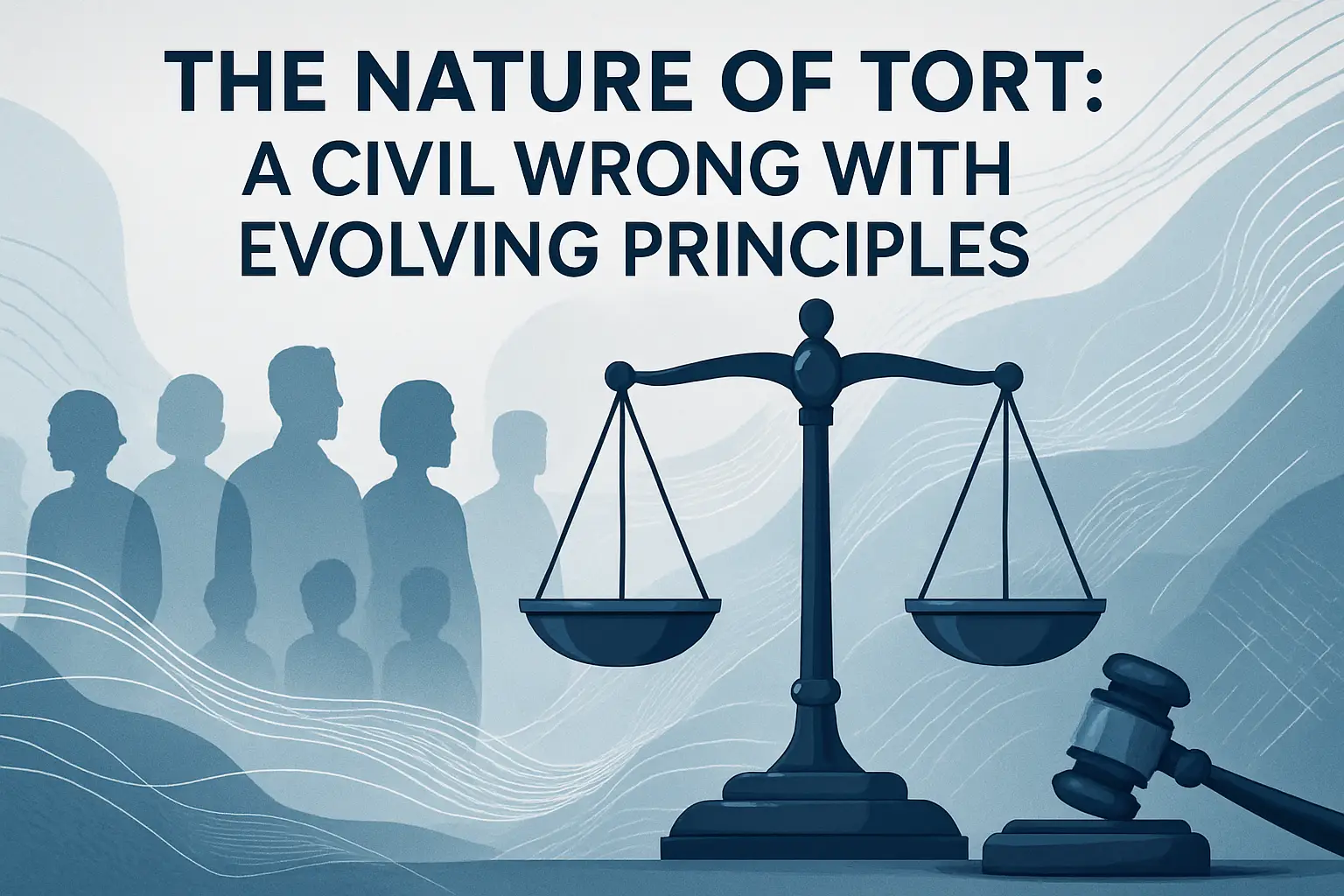When we hear about legal disputes, we often think of crime and punishment, but not every legal wrong is a crime. Some are civil wrongs—those acts that violate a person’s private rights, rather than the rights of society as a whole. In law, these are called torts.
What Exactly Is a Tort?
The word “tort” comes from the Latin tortum, meaning “twisted.” In legal terms, it describes unlawful actions that twist or violate someone else’s legal rights. While a criminal wrong is an offense against the community (think theft or assault), a tort is almost always about harm done to an individual.
Imagine someone damages your property or harms your reputation—those are classic examples where tort law steps in.
Remedies: How Does Tort Law Help Victims?
The central remedy in tort law is compensation. But, unlike a contract (where the amount is agreed beforehand), damages in tort cases are called “unliquidated damages”—the court decides how much the victim should get, based on the actual harm suffered.
This is what separates tort law from contract law:
- Contracts: Damages might be predetermined by both parties.
- Torts: Compensation is set by law, not private agreement, and duties are owed to society at large, not just to specific people.
The Roots and Growth of Tort Law in India
Indian tort law traces its roots to English common law—the system of law developed by courts in England. But over time, Indian courts and lawmakers have shaped these rules to fit our local realities. The result? A progressive, continuously evolving law that’s ready to address fresh challenges—from environmental issues to internet-related wrongs.
Key Principles That Guide Tort Law
Three core ideas form the backbone of tort law:
- Ubi jus ibi remedium: Where there is a right, there is a remedy. If your legal right is violated, the law believes you deserve a solution.
- Injuria sine damno: Injury without damage. Sometimes, just infringing your legal right is enough for you to claim compensation, even if you haven’t suffered a loss that’s easy to measure.
- Damnum sine injuria: Damage without injury. Not all harm leads to legal recourse—if there’s no legal right violated, you can’t sue just because you’ve suffered a loss.
Torts vs. Crimes: What’s the Difference?
Occasionally, one act can be both a tort and a crime—think assault or libel. Yet, their legal journeys diverge. The criminal law process is about punishing the offender to protect society. In contrast, tort law is about making things right for the individual—its primary focus is compensation, not punishment.
Why It Matters
The heart of tort law is simple: if someone twists the course of right conduct and you’re harmed, the law gives you a way to be made whole again. As new types of harm and rights emerge in our society, the law of torts continues to adapt—making sure justice isn’t just a word, but a living reality.

